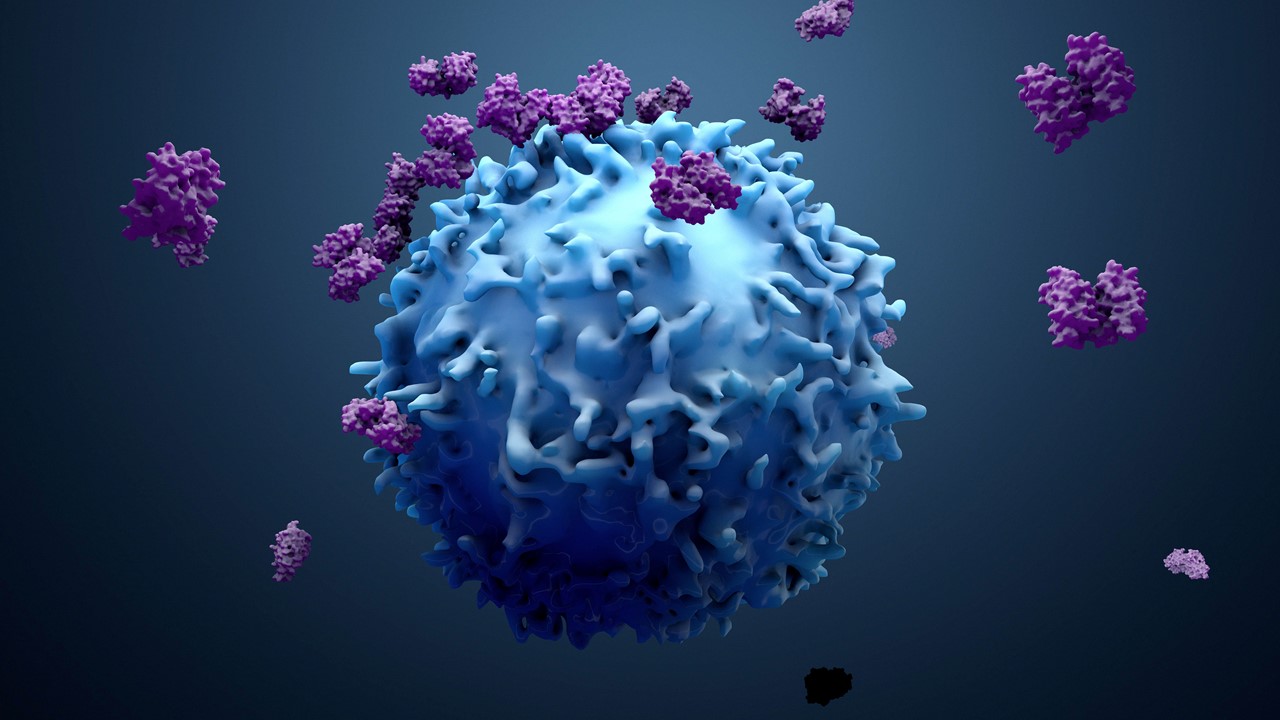FDA Approved New Immunotherapy Regimen for Patients with Melanoma Based on Johns Hopkins Research
03/23/2022

“The FDA’s approval of this novel combination therapy is an exciting development for all of us in the melanoma community,” says Dr. Lipson. “Our collaborative research with scientists and physicians worldwide has demonstrated that targeting LAG-3 effectively activates the immune system against cancer and has established the LAG-3 pathway as the third immune checkpoint pathway in history, after CTLA-4 and PD-1, for which blockade has a clinical benefit.”
Checkpoint inhibitor immunotherapy works by blocking specific proteins on the surfaces of cells that help cancer evade the body’s immune system. Blocking these checkpoints helps the immune system fight and eliminate cancer.
In the RELATIVITY-047 trial, 714 patients with advanced, previously untreated melanoma were randomized to receive either relatlimab plus nivolumab, or nivolumab alone. Median progression-free survival – the length of time that cancer does not worsen – was 10.2 months among patients who received the combination treatment, significantly longer than the 4.6 months seen among those who received nivolumab alone. At one year, progression-free survival was 48% for patients receiving combination therapy and 37% for those receiving nivolumab alone.
Nivolumab acts on a protein called PD-1 and is FDA-approved for treating melanoma and several other cancer types. Relatlimab blocks signaling of an inhibitory protein called LAG-3 displayed on immune system T cells, reinvigorating their anti-tumor activity.
The anti-tumor effects of LAG-3 blockade were originally co-discovered by scientists at the Bloomberg~Kimmel Institute. Preclinical studies of the combination therapy in mice started at Johns Hopkins in 2010, with a grant from the Melanoma Research Alliance to Johns Hopkins investigators Suzanne L. Topalian, M.D., professor of surgery and oncology at Johns Hopkins, and Drew M. Pardoll, M.D., Ph.D., director of the Bloomberg~Kimmel Institute for Cancer Immunotherapy and co-director of the Cancer Immunology Program at the Johns Hopkins Kimmel Cancer Center.
The RELATIVITY-047 trial was sponsored by Bristol-Myers Squibb Co. Dr. Lipson is a paid consultant and advisory board member. Dr. Pardoll receives research grant support. Dr. Topalian is a paid consultant and receives research grant support. Dr. Pardoll is an inventor on a patent on the blockade of LAG-3 for the treatment of cancer. Under a license agreement between BMS and the Johns Hopkins University, Dr. Pardoll, and the University are entitled to royalty distributions related to the technology cited in the study and discussed in this publication. These arrangements have been reviewed and approved by the Johns Hopkins University in accordance with its conflict-of-interest policies.
